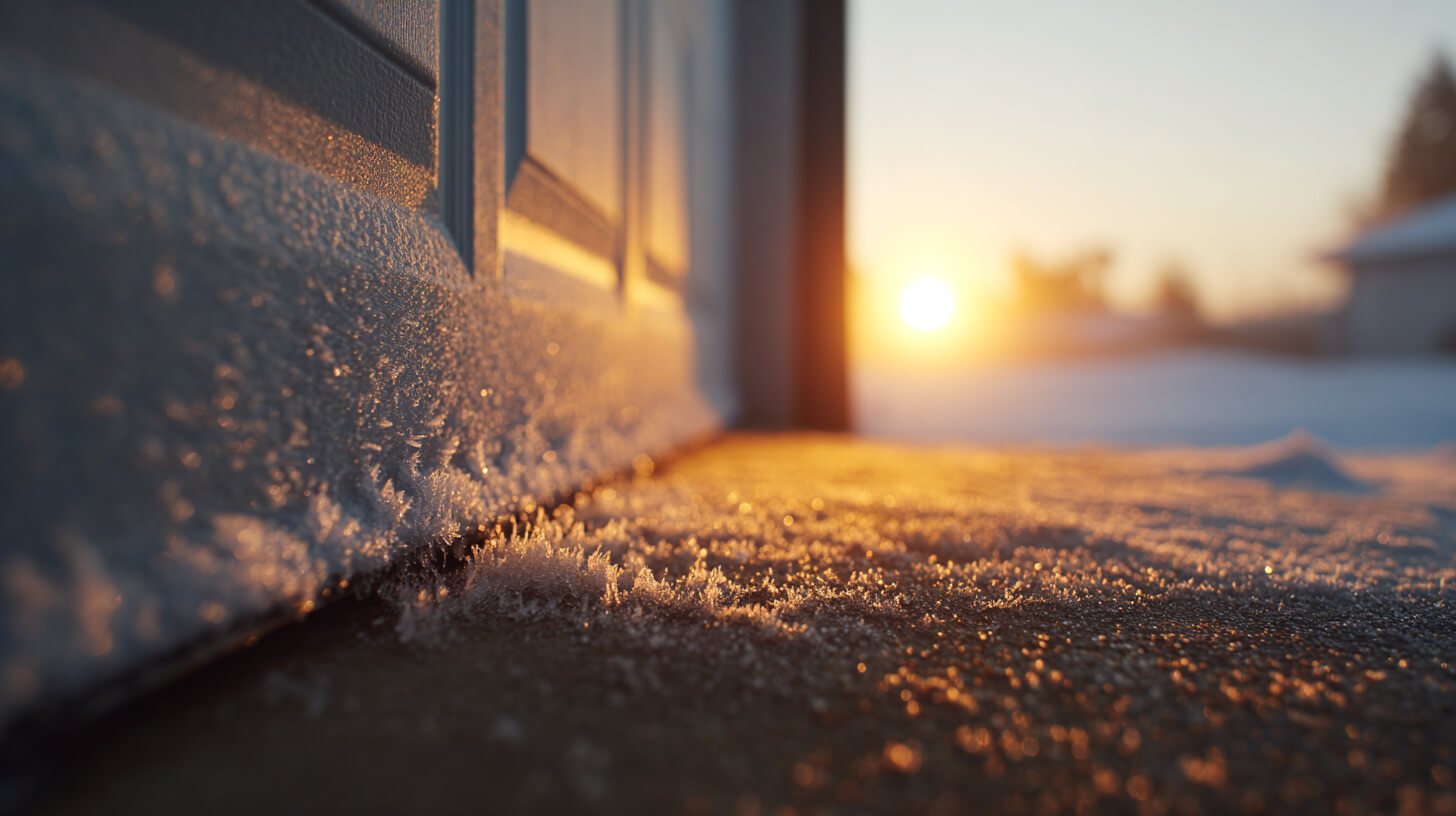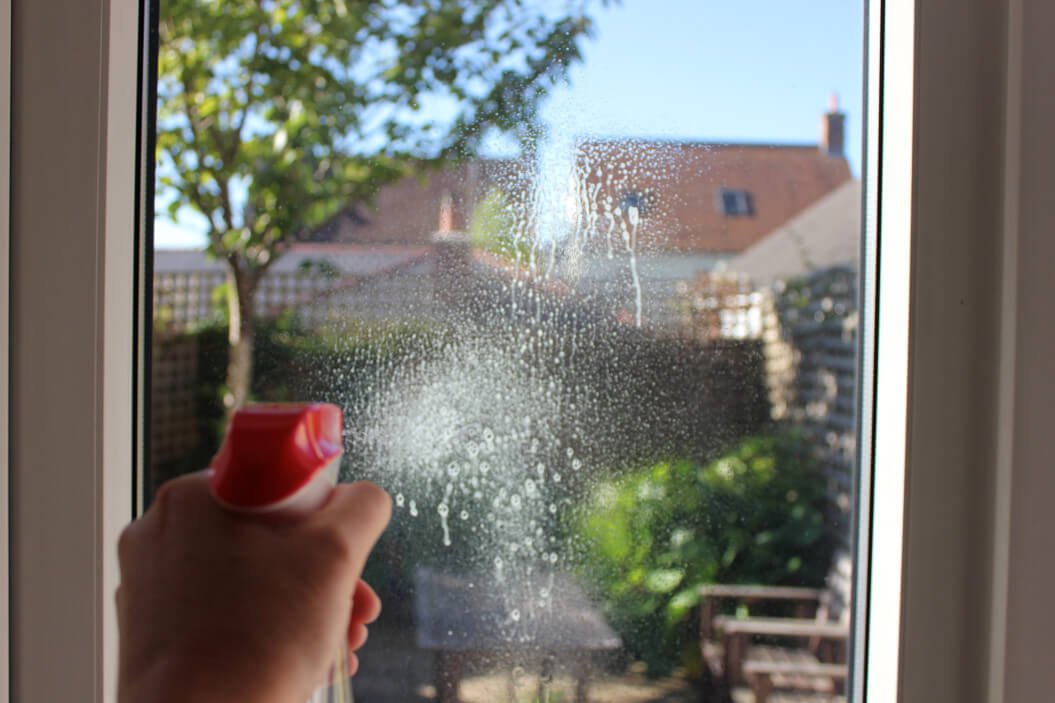There’s a special kind of quiet on a January morning here. You step outside, and the cold hits you like a wall. It’s a deep, still cold that seems to seep into everything. Few understand this better than NULIFT Garage Doors, experts in Parker Colorado who explain that extreme temperature drops create the perfect storm for sudden garage door failures.
Then you press the garage door opener. Nothing happens. Just a quiet click, or maybe a strained groan. Your heart sinks a little. Why does this always happen on the coldest day?
Living in this area means understanding a unique challenge. Our elevation, nearly a mile high, makes winters intense. Temperatures can plummet and stay low for days.
This harsh weather tests every part of your home. Your garage door is on the front lines. Metal contracts, lubricants thicken, and seals become brittle.
This article provides clear information for every resident. Whether you’re new to the community or a long-time homeowner, we’ll explain the science behind these sudden failures. Our goal is to help you protect your investment.
Let’s explore what really happens to garage doors in Parker Colorado when winter strikes. You will learn practical tips to keep everything running smoothly all season long.
Winter Challenges for Garage Doors
Have you ever wondered why your garage door seems to fight back on those bitter cold mornings? The freezing temperatures create specific problems that gradually wear down your system.
Cold Weather Effects on Metal and Seals
Metal contracts when it gets cold. Your garage door panels actually shrink slightly. This change can cause misalignment with the tracks.
The rubber seals around your door become stiff and brittle. Have you noticed cracks forming along the bottom seal? This happens after several harsh winters.
Frozen Mechanisms and Motor Issues
Lubricants in springs and hinges thicken in the cold. This creates extra resistance that strains your motor every time you operate the door.
Moisture can seep into small spaces between components. When it freezes overnight, it locks mechanisms solid. Your opener motor wasn’t designed to break through ice.
Over time, this constant extra effort wears out components faster. A garage door that worked perfectly in fall might suddenly fail during deep winter. Understanding these challenges helps you protect your parker home investment.
Environmental Factors in Parker Colorado Winters
Have you noticed how quickly weather can change here, turning a mild afternoon into a freezing night? Our unique geographic position creates winter conditions that challenge garage doors in specific ways.
Heavy Snowfall Impact
The Parker area sits nearly 6,000 feet above sea level. This elevation means we get heavier, wetter snow than lower locations.
Even a few inches of accumulation adds significant weight to your garage door. Wet snow can pile 50 extra pounds onto the structure. This strains springs and motors not designed for such loads.
Our location about 23 miles from Denver puts us directly in the path of mountain storms. The population of over 58,000 residents means thousands of garage doors face this challenge simultaneously.
Ice Formation and Rapid Temperature Drops
Temperature swings are dramatic in this state. Days might reach 43°F while nights plunge to 15°F. This 25-30 degree difference happens regularly.
Snow melts during warmer daylight hours. Then it refreezes overnight into solid ice around door seals and mechanisms. This freeze-thaw cycle loosens hardware over time.
Beautiful mountain views come with a trade-off. Arctic air masses sweep down from those peaks, causing rapid temperature drops. Your garage door expands and contracts with each swing, creating stress points.
Garage Door Failures in Parker Colorado During Winter
Many garage door problems that seem to appear overnight actually develop slowly over time. That loud bang you hear on a cold morning? It’s usually the final result of wear accumulating over many seasons.
Understanding these gradual processes helps homeowners stay ahead of major repairs. Let’s explore what really causes those winter breakdowns.
Root Causes Behind Sudden Failures
Spring failures happen most often on the coldest days. Metal becomes brittle when temperatures drop dramatically. Have you heard that gunshot-like sound? That’s a spring reaching its breaking point after years of service.
Daily use creates wear that winter magnifies. Your garage door cycles hundreds of times each year. Cold weather makes every operation more stressful on the system.
Families who park vehicles inside contribute to another issue. Warm engines meeting cold garage air create condensation. This moisture leads to rust that weakens components over time.
People often miss early warning signs like slower operation or grinding noises. These subtle changes are your door asking for attention before major failure occurs.
The size of your garage door matters too. Larger doors place more stress on cables and springs. When these components finally fail, it feels sudden but actually results from prolonged strain.
Understanding these root causes helps families in Parker Colorado transition from emergency repairs to preventive care. Knowledge gives every homeowner the power to protect their investment.
Identifying Signs of Winter Damage
Catching winter damage early starts with knowing what to look for. A simple visual check before and after the cold season can save you from bigger headaches later. This is true for every parker home, whether it’s new or has stood for decades.
The town has a long history of harsh winters. Over time, residents have learned which signs signal trouble. Let’s break down the key warnings into two groups: what you see and what you hear.
Cracks, Dents, and Misalignments
Start with a close look at your garage door. Search for small cracks in the panels or dents from falling ice. Are there new gaps between sections when the door is closed?
Misalignment is a common issue. Look for uneven spaces along the sides of the closed door. If one side sits lower, your tracks or springs may need adjustment.
Check springs and cables for a white, powdery substance. This rust signals moisture exposure. Addressing it early prevents future failures.
Operational Warning Signals
How does your door sound and move? Slower operation than usual means something is straining. Strange grinding or squealing noises are cries for help from worn parts.
Does your door reverse for no reason or refuse to close? This often points to misaligned safety sensors or a motor fighting resistance. Jerky movement instead of a smooth drive suggests damaged rollers or blocked tracks.
You might hear the motor run but see the door barely move. This indicates worn gears in the drive mechanism. Paying attention during each use helps you spot these issues before they lead to a breakdown.
Preventive Measures for Reliable Garage Performance
What if you could prevent most garage door issues before they even start? Simple maintenance habits make this possible. Taking action before winter arrives saves time and money.
People in the parker area understand this approach well. Our community values proper upkeep of public spaces. This same mindset helps protect your garage door.
Routine Inspections and Maintenance
Check your garage door twice each year. Look for worn parts before cold weather hits. Tighten loose bolts and lubricate moving components.
Use special cold-weather lubricants. Regular grease gets too thick when temperatures drop. This simple step reduces strain on your motor.
Test your door’s balance regularly. Disconnect the opener and lift the door halfway. It should stay in place without falling or rising.
Weatherproofing and Insulation Techniques
Replace worn seals before winter arrives. New rubber barriers keep out cold air and moisture. This protects your garage space from the elements.
Consider adding insulation to your door. The square feet of surface area represents significant heat loss. Insulated panels help maintain warmer temperatures.
Families who follow these steps avoid emergency repairs. The information in your owner’s manual provides specific guidance. Professional inspections catch hidden problems too.
Just like our community maintains open space and parks, your garage deserves regular care. Preventive maintenance ensures reliable performance all winter long.
Expert Garage Repair Services and Solutions
Expert garage repair services understand the unique challenges our local winters create. They know what fails and why in our specific climate conditions.
Finding the right provider makes all the difference when your garage door stops working. Local expertise matters for lasting repairs.
Local Support Tailored for Parker Residents
Providers who work throughout Douglas County carry specialized parts for our area. They stock heavy-duty springs rated for temperature extremes.
These technicians understand how elevation near Pikes Peak affects garage systems. They know Cherry Creek’s microclimate impacts homes differently.
The town benefits from being a home rule municipality with high service standards. Local companies provide faster emergency response when needed.
Choosing Trusted Service Providers
Look for companies with real history serving Douglas County specifically. Ask how long they’ve worked in this area.
Check if they understand Parker’s unique real estate mix. Historic homes near Twenty Mile House need different expertise than newer developments.
Read reviews from other residents, especially families with kids in local schools. The Douglas County School District community shares honest feedback about service quality.
Choose licensed providers who meet Colorado state codes. Reputable companies offer warranties and preventive maintenance programs.
Wrapping Up: Safeguard Your Garage Investment
Your garage door is more than just an entrance—it’s a vital part of your home’s protection system. As our town grows with over 58,000 residents, maintaining this investment becomes crucial. Prevention always costs less than emergency repairs when winter strikes.
The population values quality maintenance throughout our community. Just like the town cares for parks and the PACE center, your home deserves similar attention. Residents from downtown to newer neighborhoods share the same climate challenges.
Will you take action before the next cold snap? Schedule an inspection or maintenance today. Your choices help preserve property values across our counties and communities. The art of smart maintenance ensures reliable performance for years to come.



